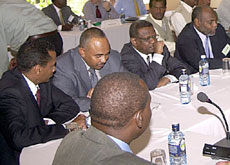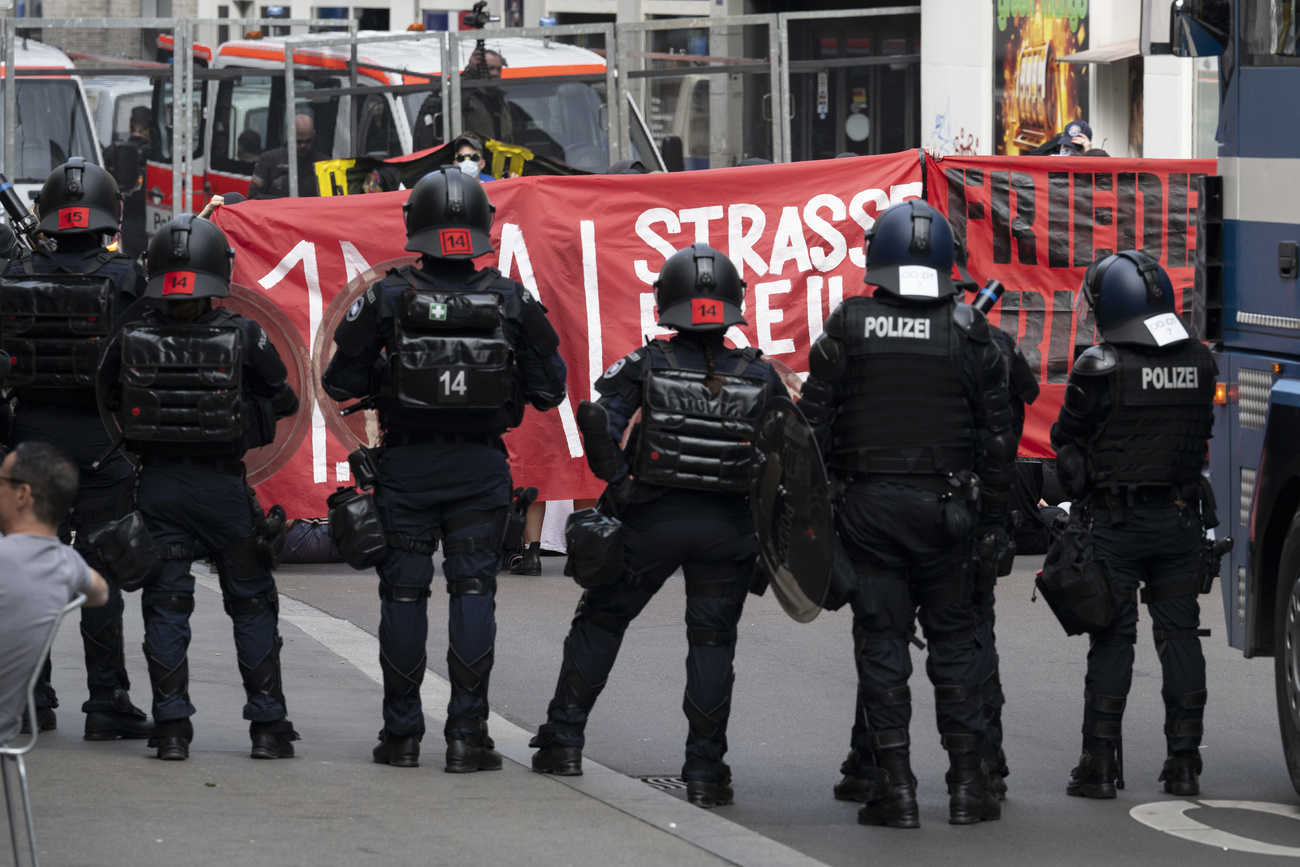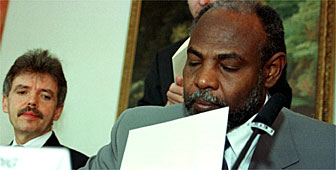Swiss hope for progress in Sudan peace talks

Negotiations between the Sudanese government and the Sudan People's Liberation Army (SPLA) have resumed in Kenya in a bid to rebuild a faltering peace plan.
Switzerland is one of several countries mediating the talks aimed at ending 20 years of civil war.
An estimated two million people have died and four million have been displaced as a result of the fighting between the Muslim government in the north and the rebels from the Christian south.
Josef Bucher, the Swiss special envoy at the talks, said the main focus would be on the sharing of power and resources between the two sides.
This will include dividing up Sudan’s oil revenues and the distribution of civil service jobs. Bucher told swissinfo that he expected the negotiations to be tough.
Rising tensions have weakened a ceasefire originally signed in January last year with the help of Swiss, United States and Norwegian negotiators.
Uneasy truce
Violence erupted soon after the truce was extended in July, and at the beginning of January both sides accused each other of attacks in the south of the country.
“The situation has become more difficult. In the last two months, it seems that both parties involved have backtracked a little bit,” said Bucher. “And so it seems that the divide between them is growing again.”
The three main disputed areas of Sudan – Abyei in West Kordofan, the Nuba Mountain region in southern Kordofan and the Angasana of Blue Nile province – were also due to be discussed.
But the government insisted they be removed from the agenda, claiming they are not included in the Inter-Governmental Authority on Development (Igad) mandate.
Contested areas
The disagreement threatened to sabotage the latest talks, but the government agreed to go ahead following a meeting with US special envoy to Sudan, John Danforth. As a result, the three areas have been taken off the agenda.
Although this has limited the scope of the talks in the Kenyan capital Nairobi, Bucher says there are still plenty of important issues on the table.
“The three contested areas are not a central issue,” Bucher told swissinfo. “The most important issue is that they should come to an agreement on the main issues of sharing power and resources.”
He added that the disputed areas would be discussed once an agreement has been reached on the first issues.
Lengthy negotiations
The first round of talks is expected to last between two and four weeks, with a second round – including discussions on the disputed areas – to follow shortly afterwards.
The two sides have been threatened with a US walkout if they fail to reach an agreement in six months.
Bucher says that while this is adds pressure to the talks, it is not unreasonable. He believes that an agreement could be reached within three months if neither side applies delaying tactics.
Both sides have managed to make progress in the past; in July, they agreed to let the south hold a referendum on independence in six years’ time.
“I think the additional element of pressure is logical,” said Bucher. “If they are not working for a solution within six months, it means they are not seriously working for an agreement.”
swissinfo, Joanne Shields
Civil war broke out in Sudan in 1983, between the Muslim-backed government in the north and the SPLA rebels in the Christian south.
Since the conflict began, some two million people have been killed.
A ceasefire was signed in Lucerne in January 2002, and was reinforced in the following July.
The latest talks are to focus on power- and resource-sharing.
The three main disputed regions will not be discussed until a later date.
Switzerland is among the mediators attending the talks.

In compliance with the JTI standards
More: SWI swissinfo.ch certified by the Journalism Trust Initiative










You can find an overview of ongoing debates with our journalists here . Please join us!
If you want to start a conversation about a topic raised in this article or want to report factual errors, email us at english@swissinfo.ch.